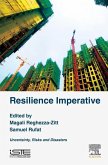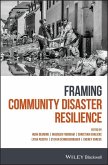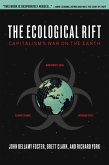The design futures include rich information, show how to take advantage of existing tools, and allow just-in-time decision making, but they are not yet fully realized. The individuals in these scenarios are archetypes of the people that manage similar issues today.
Today's technology lets us to talk to each other in ways that enable positive change.
Technology allows each of us to make decisions about the things that affect us personally.
Technology is leveling the field for everyone. No longer must we rely on experts talking at us as we find solutions to today's most vexing problems. We can all participate directly in the decisions, with real data, to get greater certainty of outcomes.
Not long ago, we watched well-televised battles about whether we face a global energy and environmental crisis. Financial markets escalated as though investor confidence and price increases would last forever. Business was thriving. Few understood the power and opportunities that technology could make possible. Few had a vision for how to move forward. Through it all, there was little talk of real change.
Now, things are much different. We are recovering from the financial crash at a snail's pace. Too many are still out of work. We are suffering the effects of poor planning and lack of transparency. A small fraction of society is reaping financial benefits from the low-hanging fruit. Through it all, information is becoming a commodity. Many are embracing new tools such as the iPad and smartphones. The cloud is becoming ubiquitous. A vision for the future remains elusive.
Complexity has changed the nature of our world. There are significant barriers to improving things in the world today. Some of the barriers are due to ignorance... people do not know what they do not know. Some are due to inertia... people have a hard time changing to new ways of doing things. Some are due to self-interest... people are looking out for "number one." Some of the barriers are slowing the change, and others are undermining the benefits to society.
The built environment consumes most of our fossil fuels. With the world heating up and fuel becoming ever scarcer, we must do something now. We have the tools to analyze consequences and change trajectories. It is our responsibility to promote sustainability and better decisions throughout our world. We must take action. There is no time to wait.
Dieser Download kann aus rechtlichen Gründen nur mit Rechnungsadresse in A, B, CY, CZ, D, DK, EW, E, FIN, F, GR, H, IRL, I, LT, L, LR, M, NL, PL, P, R, S, SLO, SK ausgeliefert werden.









